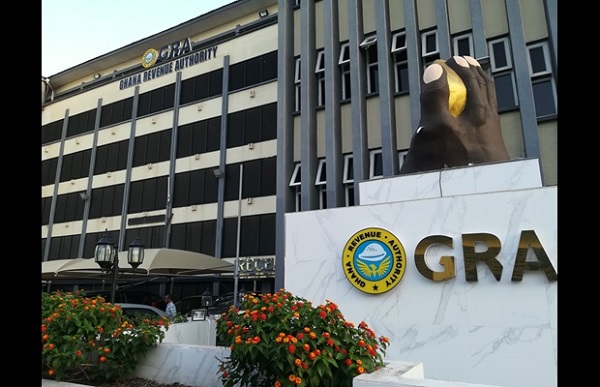The Ghana Revenue Authority (GRA) will from June 6, 2023, begin implementing a compliance tool, known as “Upfront Payment” to encourage persons required to register for VAT to do so, and file tax returns.
The Officer-in-Charge of Domestic Tax Revenue Division of the GRA, Edward Gyambrah, who made this disclosure during a media engagement, said the measure had become crucial because VAT compliance had traditionally been a challenge due to the informal nature of transactions in the economy.
He also announced that the Excise Tax Stamp Act, 2013 had been amended to provide for affixing of tax stamps to the new excise products under Act 1093. He stressed that the excise tax stamp is not a tax but a compliance tool to check smuggling and under-declaration of goods.
Mr Gyambrah lamented that some importers, though registerable for VAT purposes, are currently not in the VAT net. He said such importers, apart from paying import VAT at importation, do not charge the tax when they supply goods on the domestic front
He, therefore, explained that, to ensure compliance, the VAT (Amendment) Act, 2022 (Act 1082) was enacted to impose an upfront payment of 12.5% on the customs value of taxable goods at all ports of entry, imported by persons who are required by law to register for VAT, in addition to import duties and taxes.
“Such importers will, however, be allowed to recover these payments when they register and file their VAT returns subsequently, as required by Act 1082,” he stated. He emphasised that the ‘Upfront Payment’ is not a new tax but rather a compliance tool to encourage persons required to register for VAT to register and file tax returns.
Rationale
The GRA Domestic Tax Revenue Division Officer said it would ensure tax compliance as well as identify non-compliant taxpayers. He added that it would foster parity in the treatment between VAT registered taxpayers who charge the tax on their imported goods on the domestic front, and unregistered importers of taxable goods who do not charge VAT on their domestic supplies.
Touching on the scope of application of the ‘Upfront Payment’ compliance, he explained that it applies to taxable goods imported into the country for home consumption.
He indicated that it also applies to taxable uncustomed goods forfeited and auctioned and taxable goods on transfer from bonded facilities
“Persons liable to make ‘Upfront Payment’ include importers of taxable goods who are required to register for VAT but who have failed to register. The unregistered importers of goods become liable when they import taxable goods with a custom value of GHS200,000.00 and above per consignment,” he stated.
He said tax evasion, avoidance and under-declaration of income are pervasive in the country, a situation that robbed the state of crucial revenue for development.
Exclusions
Mr Gyambrah noted that the ‘upfront payment’ does not apply to exempt imports -including imports under categories such as temporary import, transshipments, transit & coasting trade, in-bond manufacturing, warehoused, and any cargo under bond/suspense.
“It doesn’t apply to privileged or exempt persons/institutions/companies (The President, Diplomats and diplomatic missions, persons with disability, religious organisations, donor and charity organisations, free zone enterprises, etc). Imported taxable goods valued below the threshold of GHS200,000.00 per consignment,” he indicated.
He also urged affected importers to visit the closest DTRD Taxpayer Service Centre near them to regularize their tax affairs before making an import or a declaration to Customs in order to avoid the sanction.
“Importers who claim they are not liable to make the upfront payment may apply to the Commissioner-General, stating the reason(s) in the ICUMS Single Window Portal for exclusion from the charge. An application for recovery of the upfront payment should be submitted within six months after the date on which the upfront payment was made,” he noted.
To recover upfront payment, he directed importers to applying electronically on the ‘RECOVERY OF UPFRONT PAYMENT’ form, which is available on the Taxpayers’ Portal (www.taxpayersportal.com).
Enforcement
The GRA Domestic Tax Revenue Division Officer called on the media to use their various mediums to ensure that members of the general public are abreast with the compliance measure for a smooth and successful implementation.
He added that tax compliance tool constitutes an important source of public revenue for the government and, therefore, checking non-compliance tax payers would help mobilise enough revenue to make up for the gap in order to ensure sustainable development.
He said the GRA had stepped up its efforts to ensure that individuals who fail to comply will be dealt with in the tax courts.
“Taxation on night market economy is a focus…. So persons that are doing businesses in the night and are not registered with Ghana Revenue Authority, can be assured that this year, we’ll come after you,” he warned.
Dailystatesman





